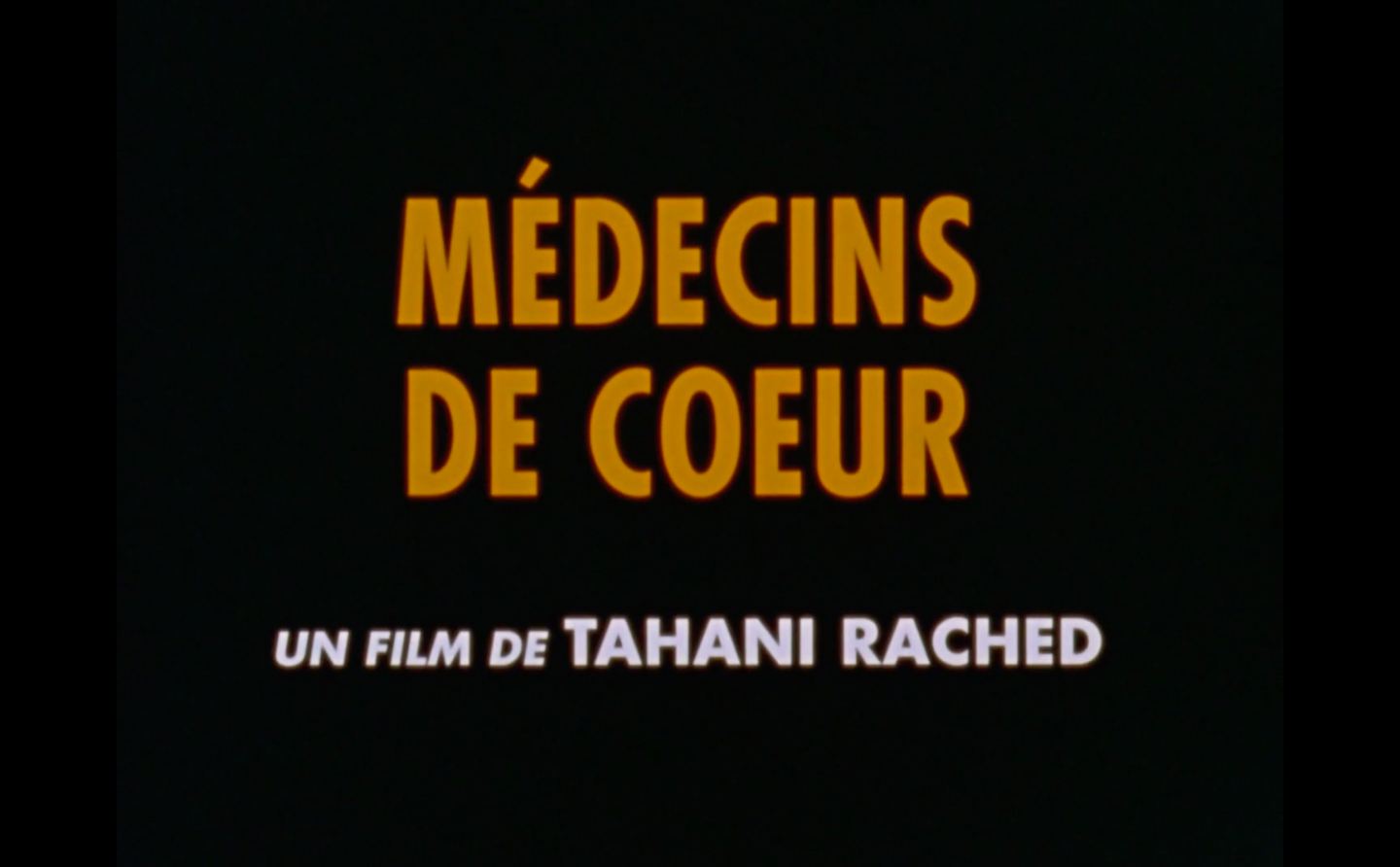Médecins de coeur (1993) – 112 minutes, colour, french
by Tahani Rached
 Médecins de Coeur [Doctors of the Heart] is a National Film Board-funded documentary that focuses largely on Dr. Réjan Thomas, one of the co-founders of the first STI clinic in Canada in 1984. This clinic would become what we know of today as Clinique médicale l’Actuel in Montreal, one of the leading STI and HIV prevention and treatment centres in Canada. While the film builds its central narrative following Dr. Thomas to and from classrooms, clinics, and international conferences where he educates the film’s viewers about HIV/AIDS, activists and protests provide a rowdy backdrop to what is otherwise a somewhat monotonous two hours of talking heads.
Médecins de Coeur [Doctors of the Heart] is a National Film Board-funded documentary that focuses largely on Dr. Réjan Thomas, one of the co-founders of the first STI clinic in Canada in 1984. This clinic would become what we know of today as Clinique médicale l’Actuel in Montreal, one of the leading STI and HIV prevention and treatment centres in Canada. While the film builds its central narrative following Dr. Thomas to and from classrooms, clinics, and international conferences where he educates the film’s viewers about HIV/AIDS, activists and protests provide a rowdy backdrop to what is otherwise a somewhat monotonous two hours of talking heads.
 The film opens with scenes from numerous ACT UP Montreal actions at what is now an HIV/AIDS memorial park called Parc de l’Espoir (corner of Panet and Ste. Catherine streets). Many interviewees of the AAHP that were involved in ACT UP Montreal recall the fight to establish the AIDS memorial park in some detail. Check out our interviews with Glenn Betteridge, Michael Hendrick and René Leboeuf, and Earl Pinchuk for the inside scoop.
The film opens with scenes from numerous ACT UP Montreal actions at what is now an HIV/AIDS memorial park called Parc de l’Espoir (corner of Panet and Ste. Catherine streets). Many interviewees of the AAHP that were involved in ACT UP Montreal recall the fight to establish the AIDS memorial park in some detail. Check out our interviews with Glenn Betteridge, Michael Hendrick and René Leboeuf, and Earl Pinchuk for the inside scoop.
Two other notable AIDS activist-related scenes in the film include: Douglas Buckley-Couvrette, who is remembered lovingly by many Montreal AAHP interviewees, leading an ACT UP Montreal demonstration commemorating the murder of Joe Rose; the Amsterdam VIII International AIDS Conference where sex worker activists launched the Global Network of Sex Work Projects—and in fact you can see a young Andy Sorfleet amongst the picketing sex workers in the footage.
Lastly, of note, is the constant discussion of the cost of medications to treat HIV and opportunistic infections. That is because this 1993 documentary precedes the 1997 Quebec national pharmacare program brought in by the recently elected Parti Québécois in late 1994. ACT UP Montreal launched a multi-year campaign to include HIV-related treatments under the maladies sur pieds social welfare program to no success under the then-Liberal Party provincial government. This program was designed to provide funding for treatments in order to keep people with chronic illness medicated so they wouldn’t constantly be at the hospital or in a clinic. The push to add HIV/AIDS to the list of illness treated through the the maladies sur pieds program likely helped in the push for a national pharmacare plan in Quebec, claims Michael Hendricks in his interview with AAHP.
